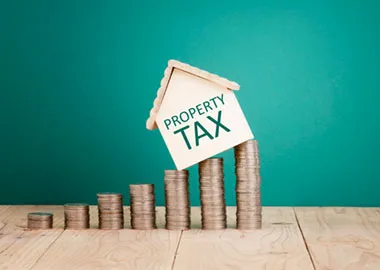Can Homeowners Save on LTCG Tax Without Indexation? We Have the Answers
By lodha
September 10, 2024

Did you know that as part of the Union Budget for FY24-25, Finance Minister Nirmala Sitharaman revealed rollbacks related to indexation? Indexation is a tool that allows sellers to adjust the original cost of acquisition of their property, accounting for inflation. Doing so allows them to reduce the taxable amount, determined by subtracting the adjusted acquisition price from the selling price, and save on Long-term Capital Gains Tax. However, as per the new provisions, homeowners can choose between opting for the benefits of indexation and getting taxed at the rate of 20% or do away with them and get taxed at 12.5%. If you choose the latter, there are still ways you can save on Long-term Capital Gains Tax (LTCG). Continue reading to learn more
How to Save on LTCG Without Indexation?
Long-term Capital Gains tax refers to the profit a homeowner will earn when he sells his property after holding it for more than two years. While indexation has helped sellers save on LTCG tax, the Income Tax Act of 1961 also provides other provisions that enable the same. If you, as a seller, act according to the provisions listed in the Income Tax Act, you may be entitled to cutbacks or exemptions on LTCG tax. Here are the provisions of the Income Tax Act that help you save on LTCG tax:
Section 54:
According to Section 54, you can exempt yourself from paying LTCG tax on the sale of a property if you acquire a new property either a year prior to or within two years of selling. If you plan to build a new home, the Act extends the timeframe to three years from the sale. You can claim an exemption to the tune of whichever is the lesser amount: the capital gains from the sale or the cost of purchase/construction of a property. However, there are a few restrictions on this provision:
- You can claim an exemption for 1 unit/home only. However, you can claim an exemption for two units/homes if the capital gains earned on the sale are up to Rs 2 crore.
- Section 54 only applies to the sale and purchase of properties in India.
- The property you purchase using the funds from the sale cannot be sold for three years after purchase/completion of construction.
- From 2023, a maximum limit has been imposed on this section: if you earn capital gains more than 10 crore from a property sale, the excess gains will not be eligible for exemption.
Section 54EC:
According to Section 54EC, you can avail of the exemption from paying LTCG tax if you sell long-term capital assets, like property, to invest in designated government bonds and instruments, like infra bonds. However, you must purchase such bonds within six months from the sale. Also, you can only invest Rs 50 lakh under this provision. Here are a few other restrictions on Section 54EC:
- You can only avail of the exemption if you invest in bonds and securities that are notified.
- If you sell the bonds/securities within five years of acquiring them, you will lose the exemption.
- The exemption will also fail to apply if you borrow against the bonds within five years of acquisition
Capital Gain Account Scheme:
The Capital Gain Account Scheme complements Section 54 of the Income Tax Act of 1961. The scheme addresses practical challenges that arise when a taxpayer tries to invest the funds from the sale of a property in another real estate transaction. Since Section 54 lists a stipulated time, taxpayers may face difficulties while filing their ITR for the year in which the gain has risen, especially if they have not purchased/constructed the house prior to filing taxes. If you are unable to use all the capital gains from a transaction by the due date for filing ITR, you can deposit the unutilised amount in any public bank under the CGAS Scheme. Once you have deposited funds in this account, you must use them within two years if you are buying a home and three years if you are constructing one.
Regardless of whether you opt for the benefits of indexation or not, you can avail of the measures listed above to save on LTCG tax. If you want to invest in property to avail of exemptions under Section 54, look no further than Lodha. With premium properties across India, Lodha promises quality without compromising on comfort
You may also like



 Enquire
Enquire
 Call
Call
 chat
chat
 Search
Search





